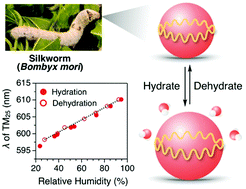The Mac
@TheMac
06 August, 08:05
Notice: Undefined index: tg1tga_access in /home/admin/www/anonup.com/themes/default/apps/timeline/post.phtml on line 396
SusieQ Freedom
@Luckysusi
06 August, 08:10
In response The Mac to his Publication
Much happier hydrated! 💦🐛..
Notice: Undefined index: tg1tga_access in /home/admin/www/anonup.com/themes/default/apps/timeline/post.phtml on line 396
The Mac
@TheMac
06 August, 08:17
In response SusieQ Freedom to her Publication
Nobles and kings of foreign lands desired silk and would pay high prices for the
cloth.
The emperors of China wanted to keep the process for making silk a secret.
Anyone caught telling the secret or taking silkworms out of China was put to death.
The Chinese managed to keep silk a secret for over 1000 years.
cloth.
The emperors of China wanted to keep the process for making silk a secret.
Anyone caught telling the secret or taking silkworms out of China was put to death.
The Chinese managed to keep silk a secret for over 1000 years.
Notice: Undefined index: tg1tga_access in /home/admin/www/anonup.com/themes/default/apps/timeline/post.phtml on line 396
The necessity for optical interfaces in biomedical applications is driving increasing demand for the development of biocompatible photonic components. Biophotonic components are essential for applications including sensors,[1,2] imaging,[3–6] bio-micro- electromechanical systems (MEMS) devices,[7] and therapeu- tics.[8] Silk fibroin in film form has been recently identified as a suitable biopolymer for the development of optical devices.[9,10] Biocompatible silk fibroin has promise as an optical biomaterial based on a number of important physical properties.[11] In particular, silks are the strongest and toughest natural fibers known, and regenerated silk fibroin from the Bombyx mori silkworm are easily formed into a variety of material formats such as hydrogels,[12] ultrathin and thick films,[13,14] controlled-release coatings,[15] 3D porous matrices,[16] and fibers with controllable diameters.[17]
08:19 AM - Aug 06, 2022
In response The Mac to his Publication
Only people mentioned by TheMac in this post can reply
The Mac
@TheMac
06 August, 08:20
In response The Mac to his Publication
In addition to these structures, which are primarily for biomedical applications, silk fibroin has also been used to fabricate biocompatible and biodegradable microfluidic devices that can be used as biosensors or other BioMEMS devices.
Notice: Undefined index: tg1tga_access in /home/admin/www/anonup.com/themes/default/apps/timeline/post.phtml on line 396
The Mac
@TheMac
06 August, 08:21
In response The Mac to his Publication
Bio-MEMS is an abbreviation for biomedical (or biological) microelectromechanical systems. Bio-MEMS have considerable overlap, and is sometimes considered synonymous, with lab-on-a-chip (LOC) and micro total analysis systems (μTAS). Bio-MEMS is typically more focused on mechanical parts and microfabrication technologies made suitable for biological applications. On the other hand, lab-on-a-chip is concerned with miniaturization and integration of laboratory processes and experiments into single (often microfluidic) chips. In this definition, lab-on-a-chip devices do not strictly have biological applications, although most do or are amenable to be adapted for biological purposes. Similarly, micro total analysis systems may not have biological applications in mind, and are usually dedicated to chemical analysis.
Notice: Undefined index: tg1tga_access in /home/admin/www/anonup.com/themes/default/apps/timeline/post.phtml on line 396

